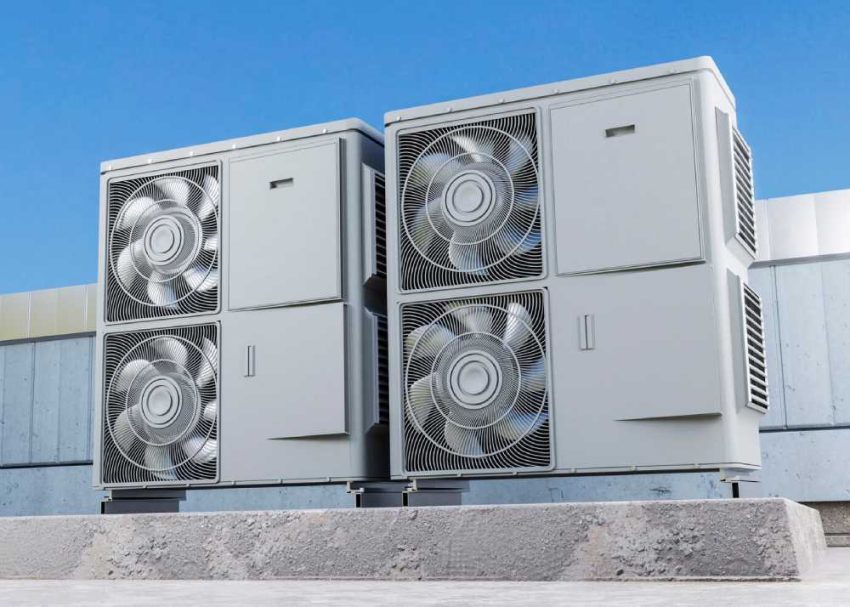By transferring heat instead of producing it, contemporary heat pump systems provide heating and cooling that uses less energy. These systems reduce energy consumption, lower utility costs, and provide year-round comfort. Innovations like variable-speed compressors, smart thermostats, and dual-fuel compatibility enhance performance and adaptability to varying climates. These days, cold-climate heat pumps are a good substitute for conventional HVAC systems because they work well in colder temperatures.
Additionally, eco-friendly refrigerants and improved insulation technology contribute to sustainability. With government incentives and rebates available, upgrading to a modern heat pump system is an environmentally responsible and cost-effective choice for homeowners seeking efficiency and long-term savings.
Introduction to Heat Pumps
Often lauded for their efficiency and versatility, heat pumps have become a pivotal solution in modern home climate control systems. Initially developed in the early 20th century, these systems have come a long way from their rudimentary beginnings, evolving into sophisticated appliances that meet today’s energy demands.
As part of the split system air conditioners portfolio, heat pumps offer the unique advantage of serving heating and cooling purposes. By seamlessly adapting to varying temperatures, heat pumps ensure consistent indoor comfort regardless of the season.
How Heat Pumps Work
The principal operation of heat pumps distinguishes them from more conventional HVAC systems. Instead of generating heat through combustion or electrical resistance, heat pumps utilize a refrigeration cycle to transfer heat from one location to another. This cycle involves an indoor and an outdoor unit connected by refrigerant lines.
Even in freezing weather, a heat pump in heating mode transfers heat from the outside air inside. During warmer months, the cycle reverses, expelling heat from inside the home to the outside environment. This dual functionality makes them a flexible and eco-friendly choice, allowing homeowners to reduce reliance on fossil fuels.
Why Choose a Heat Pump for Your Home?
Homeowners’ rising popularity of heat pumps is attributed to several practical benefits. Foremost is their energy efficiency, which translates to lower utility bills and long-term savings. Unlike traditional furnaces or air conditioners that operate intermittently, heat pumps maintain more consistent, optimal temperatures, enhancing comfort and reducing energy wastage.
Their installation can be less invasive than separate heating and cooling systems, often leveraging existing ductwork or functioning in ductless arrangements. Additionally, as more consumers recognize the importance of sustainable living, heat pumps provide a means to reduce carbon footprints, aligning personal living habits with broader global sustainability goals.
Key Innovations in Heat Pump Technology
Recent developments in heat pump technology have significantly increased its usability and efficiency. Inverter technology is crucial; it allows the compressor’s speed to adjust according to heating or cooling demands rather than operating on a fixed cycle. As a result, less energy is used, and the temperature is better controlled.
Moreover, integrating smart home technology has transformed how users interact with their systems. Wi-Fi-enabled heat pumps increase flexibility and security by giving homeowners remote monitoring and control options. For more technical details, please visit the U.S. Department of Energy for expansive information on heat pump systems and how innovations like these make an impact.
Understanding Energy Efficiency and Savings
Energy efficiency is a defining feature of heat pump systems, which frequently boast superior Seasonal Energy Efficiency Ratio (SEER) ratings compared to traditional means of climate control. These ratings indicate excellent performance in conserving energy and reducing operating costs.
Many areas provide financial incentives to encourage the adoption of such energy-efficient technologies, including rebates and tax credits, which further sweeten the deal for eco-conscious consumers. Insights from global studies, such as those conducted by the International Energy Agency, underline the importance of efficient heating and cooling solutions in mitigating climate change. They highlight how such advances play a crucial role in reducing energy consumption on a global scale.
Environmental Impact of Heat Pumps
Compared to traditional heating techniques, heat pumps significantly reduce greenhouse gas emissions, which has environmental benefits beyond just instant energy savings. Utilizing little electricity, mostly from renewable sources, and extracting heat from outdoor sources, heat pumps lessen dependency on fossil fuels. This characteristic aligns perfectly with the increased focus on reducing global carbon footprints.
Across many communities, initiatives that promote the installation of heat pumps are becoming a popular means of achieving energy independence and sustainability, helping to create a world that’s less dependent on polluting energy sources.
Tips for Choosing the Right Heat Pump
Understanding particular needs, such as climate, house size, and energy usage trends, to choose the right heat pump for your house. These aspects must be taken into account to guarantee system performance and efficiency. Besides technical specifications, seeking advice from professional installers can prove invaluable, providing insights into optimal system configurations and installation practices.
To improve energy efficiency, homeowners are frequently urged to investigate newer models with the latest innovations. Reading up on customer reviews and experiences is also beneficial for getting a real-world sense of system performance and satisfaction.
Conclusion
Modern heat pump systems stand at the forefront of innovative, sustainable home climate control solutions. They capitalize on years of technological advancements to deliver unmatched efficiency, ease of use, and environmental benefits.
Embracing heat pump technology enables homeowners to enjoy cost-effective heating and cooling while contributing positively to ecological preservation efforts. As these systems evolve, their role in shaping a sustainable future is poised to become even more pronounced, offering promise for an energy-efficient tomorrow.

